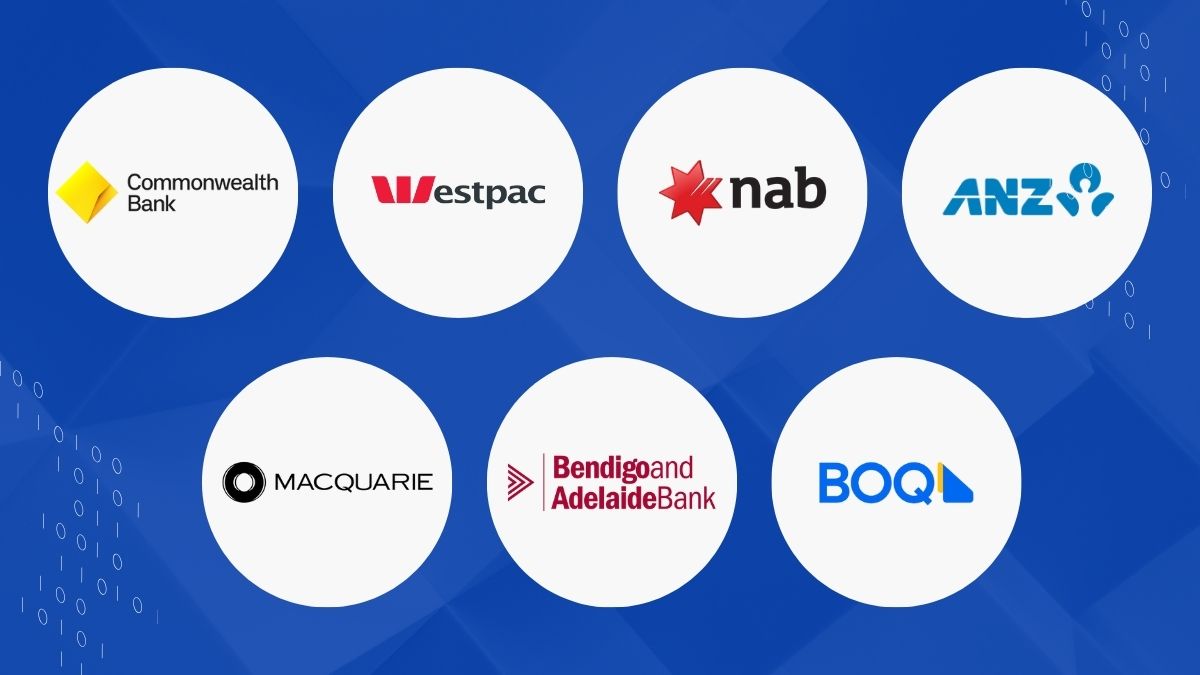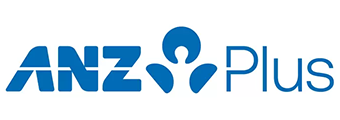
No Australian bank has collapsed since Queensland Permanent Building Society in 1977. Through shocks like the Global Financial Crisis (GFC) and the Covid19 pandemic, Aussie banks have stood firm. If you're concerned about your financial institution going under, there are probably more pertinent things to worry about going on in your life.
However, if you do prefer to err on the side of caution, small differences do make some institutions a slightly safer bet than others. Read on to discover which Australian Banks are deemed to be at least at risk of going under.
Why Australian Banks are so safe
Common Equity Tier 1 (CET1) Ratio
After the GFC, sweeping regulations were introduced across the globe to ensure banks didn't behave quite so recklessly. CET1 requirements were introduced to ensure banks had the capital reserves to absorb unexpected shocks, like the housing crisis of 2008. The capital held by banks was broken down into several categories, with CET1 being the "highest quality of regulatory capital", or the money that is on hand and readily available to absorb losses. CET1 capital doesn't include customer deposits, because these are a liability for the bank rather than an asset.
Banks have to have a certain amount of CET1 capital (at least 4.5%) on hand as a percentage of its assets like loans and investments, so that if there is a surge in loss, there are the cash reserves on hand so the bank doesn't collapse. If this threshold is breached, regulators will likely step in to ensure the bank improves its capital position.
Australian Banks typically well exceed the 4.5% mark. The largest banks all exceed 10%, with Commonwealth Bank at 11.8% as of September 30 2025.
|
CET1 ratio (to risk weighted assets) as of September 30 2025 |
|
|---|---|
|
11.8% |
|
|
12.53% |
|
|
11.7% |
|
|
11.8% |
|
|
12.4% |
|
|
11.19% |
|
|
10.8% |
$250,000 Deposit Guarantee
Cash deposits in Australian Banks are guaranteed by the Federal Government under the Financial Claims Scheme (FCS) . Introduced post GFC, the FCS covers any deposit balance up to $250,000 held in banks, building societies or credit unions. This covers every Authorised Deposit-taking Institution (ADI), and applies per account holder - keep in mind some banks share banking licences (ADI), for example CommBank and Bankwest.
The FCS covers transaction accounts, savings accounts , term deposits , offset accounts , and more other types of deposits. This also extends to policies with general insurers in the unlikely event that one of these financial institutions failed.
The guarantee means there is no need to pull your money out of the bank if you feel it is going under. This is to benefit the bank as well as they are less likely to be bled dry of deposits. Your money is guaranteed, keeping both you and the bank safe.
| Bank | Savings Account | Base Interest Rate | Max Interest Rate | Total Interest Earned | Introductory Term | Minimum Amount | Maximum Amount | Linked Account Required | Minimum Monthly Deposit | Minimum Opening Deposit | Account Keeping Fee | ATM Access | Joint Application | Tags | Features | Link | Compare | Promoted Product | Disclosure |
|---|---|---|---|---|---|---|---|---|---|---|---|---|---|---|---|---|---|---|---|
1.70% p.a. | 4.70% p.a. Intro rate for 5 months then 1.70% p.a. | $594 | 5 months | $0 | $99,999,999 | $0 | $0 | $0 | |||||||||||
0.01% p.a. Bonus rate of 4.39% Rate varies on savings amount. | 4.40% p.a. | $898 | – | $0 | $99,999,999 | $1 | $0 | $0 | |||||||||||
0.10% p.a. Bonus rate of 4.40% Rate varies on savings amount. | 4.50% p.a. | $919 | – | $0 | $99,999,999 | $$formattedMinMonthlyDep.format("%,d",$!{product.minimumMonthlyDeposit}) | $0 | $0 | |||||||||||
4.50% p.a. | 4.50% p.a. | $919 | – | $0 | $4,999 | $0 | $0 | $0 |
Lending standards
Regulators like APRA have responsible lending standards that banks need to abide by. For example, when assessing home loan applications, banks apply a 3% serviceability buffer to the interest rate the borrower will pay. If you're applying for a loan at 6% p.a, you will only be approved if your lender is satisfied you would be able to repay the loan at 9% p.a.
Another one is the debt-to-income ratio, or DTI. Many banks have hard caps on their DTI ratios, and some are more conservative than others. At present many banks restrict lending if the debt is more than 7-times someone's income. For example, if you earned $100,000 per year, a bank might be reticent to lend you more than $700,000.
This is to ensure banks aren't giving out loans to people who present an unacceptable risk of defaulting at some stage during the loan term.
Which Australian Bank is the safest by credit risk?
Each year, news outlet Global Finance publishes its list of the safest banks in the world. This is based on long term foreign currency credit ratings, or the ability of banks to meet financial commitments in foreign currency. High ratings mean the international financial community see this bank as more reliable, and therefore more secure for depositors and investors. Global Finance used ratings from Moody's, Standard and Poor's (S&P) and Fitch to come up with the rankings.
In the 2025 rankings, CommBank, ANZ, Westpac and NAB continue to rank among the 25 safest banks in the world.
|
Rank |
Bank name |
Moody's Rating |
S&P Rating |
Fitch Rating |
|---|---|---|---|---|
|
1st |
Commonwealth Bank of Australia |
Aa2 |
AA- |
AA- |
|
2nd |
ANZ Group |
Aa2 |
AA- |
AA- |
|
3rd |
Westpac |
Aa2 |
AA- |
AA- |
|
4th |
National Australia Bank (NAB) |
Aa2 |
AA- |
AA- |
|
5th |
Macquarie Group |
Aa2 |
A+ |
A+ |
|
6th |
Bendigo and Adelaide Bank |
A3 |
A- |
A- |
|
7th |
Bank of Queensland |
Baa1 |
A- |
A- |
|
8th |
Newcastle Greater Mutual Group |
A3 |
BBB+ |
NR |
|
9th |
AMP Bank |
NR |
BBB+ |
BBB+ |
As you can see, the big four have identical scores, all very strong, indicating a very low credit risk.
On a global scale, the top ten banks in North America, Western Europe, Asia and the Middle East tended to have slightly higher ratings. However, Australian banks are considered more secure than those of Latin America, Africa and Eastern Europe.
Across all nine banks, the credit scores meet the 'Investment Grade' standard at all three credit agencies, except Fitch which did not assess Newcastle Mutual and AMP Bank, which requested Moody to withdraw its rating. This seems to validate the general consensus, from economists and politicians, that the Australian banking sector is secure.
In the aftermath of the collapse of the US-based Silicon Valley Bank in 2023, Treasurer Jim Chalmers reassured Australia that its financial institutions were well positioned to deal with global challenges.
"[Australia's] banks are well-regulated, well capitalised and highly liquid and are in a better position than most to deal with these disruptions," he said.
Which Australian Bank is safest from hackers and scammers?
Bank collapse may be unlikely, but there are other areas of concern. In February 2016, hackers stole $81 million USD from the central bank of Bangladesh, while cyber attacks have also successfully stolen money in Russia.
The Australian Banking Association (ABA) is clear that the cybersecurity of Aussie banks needs to be continually updated to stay ahead of these kinds of threats, protecting both the deposits and personal information of customers.
Scamming, however, is a different story. Australians lose billions of dollars each year to scams, which has seen institutions improve their infrastructure to better protect customers. In late 2023, every bank and credit union in Australia with an ADI licence signed an anti-scam agreement, rolling out anti-scam measures, including improved warnings and payment delays.
At the end of the day, your bank account is only as secure as you make it. By being proactive and cautious, you can significantly reduce the risk of unauthorised access and protect your funds. Some simple but effective practices to keep your money safe include:
-
Never share your PIN or password to prevent unauthorised access.
-
Use strong, unique passwords that aren't easily guessable.
-
Never trust calls, texts, or emails claiming to be from your bank that ask for sensitive information or demand payment. Always verify directly with your bank.
-
Check your statements and transaction history frequently to catch suspicious activity early.
-
Secure your devices with the latest security patches and use antivirus software where appropriate.
-
Avoid public Wi-Fi for banking as it can be insecure, making it easier for hackers to intercept your data.
Image created in Canva using assets from Australian banks
First published in July 2020




